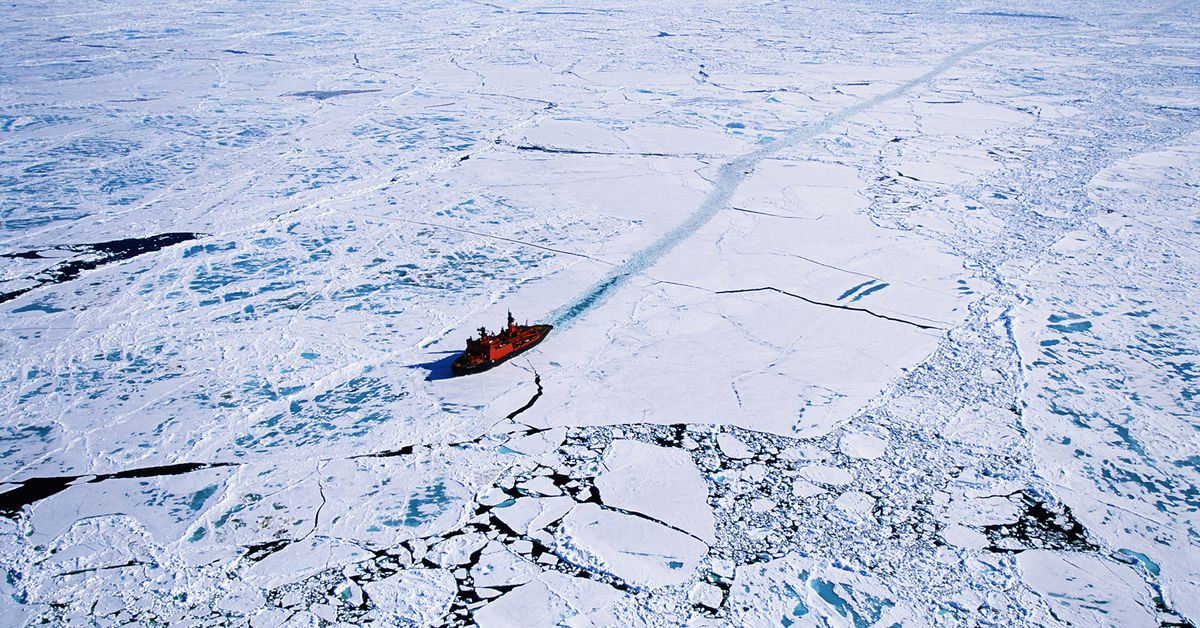Joe Biden made climate change a national security priority — what’s next?
Source: The Verge added 27th Jan 2021President Joe Biden signed a sweeping executive order today that makes climate change a top US national security priority. He commissioned a “National Intelligence Estimate on the security implications of climate change.” He also directed the Department of Defense and other federal agencies to develop plans to adapt to a warming world.
The environmental and geopolitical risks from climate change are quickly evolving. We’ve already seen droughts exacerbate water and food scarcity, which can spark conflict. In the future, climate change could be deliberately “weaponized” in clashes over resources, according to Sherri Goodman, who served as deputy undersecretary of defense for environmental security from 1993 to 2001.
The Verge spoke with Goodman, who is now a senior fellow at the Wilson Center’s Environmental Change and Security Program and Polar Institute, just before Biden signed the executive order. She paints a picture of what risks might lie ahead and what the executive order might be able to accomplish.
This interview has been lightly edited for length and clarity.
You were the first person to call climate change a “threat multiplier,” a term that’s thrown around a lot now when we’re talking about the consequences of climate change. What’s changed since you first coined the term?
We coined that phrase in 2007. At the time, we were predicting what is now a reality.
The Arctic has warmed at two to three times the global average, with temperatures as high as 100 degrees in Siberia. We now potentially face a global power competition in the Arctic as sea ice retreats and the Arctic region becomes more navigable. A whole new ocean has opened in our lifetime.
We need to understand how those climate threat multipliers have reshaped the way we see the world and the way you need to act responsibly within it.
What risks do you foresee growing?
The growing risks are that vulnerable populations become more so and that other nations begin to weaponize climate as part of their security strategies. Russia is already, for example, expanding its presence in its part of the Arctic — both for economic opportunities to convert the northern sea route into a toll road for transit from Asia to ports in Europe, as well as building up its military infrastructure. China, for example, envisions a polar “Silk Road,” where it will take advantage of retreating sea ice and being able to transit the Arctic. China has already put in place an ambitious program to increase its Arctic capabilities, particularly in science and research.
Agricultural growing areas shift with climate change. In the near to medium term, there are some winners and some losers. You need to understand how that’s going to affect global commodities — particularly food, grain, wheat, and water — as there becomes more competition for resources. We’re constantly thinking about competition for oil, which is not as valuable a resource now as it used to be. Water is becoming more precious and scarce. Wheat production is shifting to the northern region. Russia, for example, is already a major global wheat producer and will likely become more so in the future. Will it weaponize its sale of wheat in the global market in the way it did with gas sales to Ukraine some years ago, to use those resource assets as leverage?
I’m glad you mentioned the Arctic. For a lot of Americans, melting sea ice feels so far away. Can you bring home why the Arctic is so important for the US?
We have to remind ourselves, we are an Arctic Nation. Alaska is part of the United States. We have long been pioneers in the science and research for the Arctic region. Very rapid changes in the Arctic are evidence of changes occurring elsewhere in the planet, but occurring even more rapidly in the Arctic.
From a geopolitical perspective, nations around the world, particularly Russia and China, could see opportunities to potentially extract the vast energy and mineral resources, which lie below the seabed and could be exploited.
What do you hope Biden’s executive order can accomplish?
The national security implications of climate change need to be clearly recognized throughout our national security and foreign policy, strategy, and plans. That means with respect to China, the Arctic, Russia, Iran, the Middle East, Africa, we need to understand changing environmental conditions. We need to understand how that change should shape our foreign policy and national security strategies, our interactions with allies and partners, and our competition with adversaries.
And then, second, the Department of Defense, in particular, can lead by example in moving toward net-zero greenhouse gas emissions. The Department of Defense is one of the nation’s largest energy users. And it’s also subject to all the climate impacts that communities, cities around the country are. It has the same climate resilience challenge in terms of building back better and becoming climate-resilient. Whether it’s by electrifying its vehicle fleet, advancing micro grids and renewables on its bases, shoring up the resilience of its major coastal bases, or better protecting infrastructure from wildfire or permafrost collapse, the Department of Defense can lead by example in how the nation as a whole needs to become resilient to climate change.
The climate reality has already changed so much just in the last four years. The polar regions are melting. Permafrost is collapsing. Droughts are spreading. Extreme weather is more frequent and more intense. Wildfire season lasts all year. And so, the climate reality demands further action by the security community.
brands: ACT ACTION Adapt ARCTIC Defense Develop Extreme First It Lifetime Micro New One other Planet POLAR Reality Shape Summit United media: 'The Verge'
Related posts
Notice: Undefined variable: all_related in /var/www/vhosts/rondea.com/httpdocs/wp-content/themes/rondea-2-0/single-article.php on line 88
Notice: Undefined variable: all_related in /var/www/vhosts/rondea.com/httpdocs/wp-content/themes/rondea-2-0/single-article.php on line 88
Related Products
Notice: Undefined variable: all_related in /var/www/vhosts/rondea.com/httpdocs/wp-content/themes/rondea-2-0/single-article.php on line 91
Warning: Invalid argument supplied for foreach() in /var/www/vhosts/rondea.com/httpdocs/wp-content/themes/rondea-2-0/single-article.php on line 91
